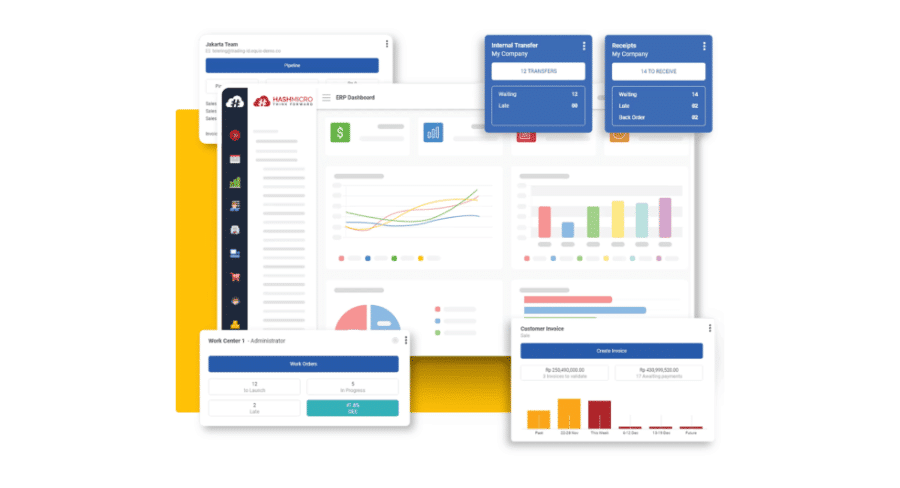Are you tired of the uncertainty surrounding your product pricing, especially when it comes to imported goods?
Understanding and managing landed costs before determining selling prices can be the key to unlocking profitability in Singapore’s retail, supermarket, and wholesale sectors.
As a business navigating the complexities of international trade, you often find yourself grappling with the challenge of setting competitive prices while ensuring healthy profit margins.
Have you ever wondered why your competitors seem to have a pricing edge? The answer might lie in their adept management of landed costs.
In a market as dynamic as Singapore’s, where global sourcing is prevalent, grasping the nuances of landed cost management becomes not just beneficial but essential for sustainable and profitable business operations.
Let’s delve into why landed cost management is crucial for your business and how it can be a game-changer in today’s competitive landscape.
Key Takeaways
|
What is Landed Cost? and Why is It Important?
The concept of landed cost might sound straightforward, but its implications on a business’s bottom line are far-reaching. Essentially, landed cost refers to the total expense of a product before it generates revenue.
It encompasses various factors such as unit costs, transportation, taxes, tariffs, and inventory management costs. Each of these components plays a crucial role in determining the final cost of goods sold (COGS), impacting the pricing strategies and profit margins of businesses.
In Singapore’s global economy, where many companies engage in international trade, the precision in landed cost calculations is not just a matter of regulatory compliance but a strategic necessity.
Accurate calculation of landed costs ensures that businesses maintain healthy profit margins and steer clear of losses that could arise from underestimating expenses. Given the city-state’s reliance on imports and exports, mastering landed cost calculations is a significant advantage for any business operating within or through Singapore.
Critical Components and Calculating Landed Cost in Singapore’s Market
Calculating landed costs in Singapore requires understanding and accounting for various components. This process starts with the unit cost of the product itself, including the purchase price and any additional expenses necessary to get the product ready for sale.
Transportation costs, often volatile due to fluctuating fuel prices and logistics challenges, form a significant part of the landed cost. Taxes and tariffs, essential in international trade, vary depending on the nature of the product and the trade agreements in place. Lastly, inventory management costs, which include storage, insurance, and other handling fees, must be factored into the overall calculation.
Given the complexity of these components, particularly in a market like Singapore’s where trade regulations and economic factors are in constant flux, accurately calculating landed costs can be a daunting task. However, the accuracy of these calculations is crucial for businesses to price their products appropriately, ensuring competitiveness and profitability in the market.
Challenges in Landed Cost Calculation and How to Overcome Them
The calculation of landed costs comes with its set of challenges. In many instances, businesses in Singapore grapple with inadequate data, limited resources, or simply a lack of time to delve into the intricate details required for precise landed cost calculation. Landed cost calculation is crucial for businesses engaged in international trade or importing goods as it provides a comprehensive understanding of the total expenses incurred from the point of origin to the final destination.
Several challenges can arise in accurately calculating landed costs, including:
- Complexity in Data Collection: Gathering accurate and detailed information on all expenses associated with importing goods can be challenging due to the involvement of various parties, currencies, tariffs, and fees.
- Varied Tariffs and Taxes: Different countries have diverse tariff structures and tax regulations, leading to complexities in determining and applying the correct duties and taxes for each product.
- Fluctuating Exchange Rates: Currency fluctuations can significantly impact landed cost calculations, especially when dealing with multiple currencies throughout the supply chain process.
- Transportation and Logistics Costs: Determining precise transportation expenses, including shipping, freight, handling, and storage costs, can be intricate due to fluctuating fuel prices, carrier rates, and route changes.
- Regulatory Compliance: Keeping up with changing trade regulations, compliance requirements, and documentation for customs clearance can pose challenges, especially in adhering to the legal aspects of importing/exporting goods.
To overcome these challenges, businesses can employ various strategies:
- Utilizing Technology: Implementing ERP Software and tools specifically designed for landed cost calculations such as HashMicro Inventory management system can streamline the process by automating data collection, managing currencies, and integrating with other systems for accurate calculations.
- Collaboration and Communication: Establishing clear communication and collaboration channels among stakeholders, including suppliers, logistics partners, and customs brokers, can help ensure accurate data collection and compliance.
- Constant Monitoring and Adaptation: Keeping abreast of changes in regulations, tariffs, exchange rates, and market conditions allows businesses to adapt their strategies proactively to mitigate risks and adjust landed cost calculations accordingly.
- Outsourcing to Experts: Engaging third-party experts or consultants knowledgeable in international trade, customs regulations, and logistics can provide valuable insights and assistance in navigating complexities related to landed cost calculation.
Interested in exploring how these inventory management features can transform your cost management strategies? Discover more about HashMicro software’s pricing plans by clicking the banner below!
Implementing ERP Solutions for Efficient Landed Cost Management
The role of ERP solutions in managing landed costs efficiently cannot be overstated. These systems are not just tools for automation; they are strategic enablers that transform how businesses handle their financial calculations and decision-making processes. In the context of landed cost management, ERP systems offer a multifaceted approach to handle the complex calculations and data integrations necessary for accurate costing.
ERP solutions streamline the landed cost management process by integrating different business functions – from procurement and logistics to finance and sales. This integration ensures that all cost-related data flows seamlessly across departments, enabling real-time visibility into costs and aiding in more accurate and timely decision-making. For businesses in Singapore dealing with international trade, this means being able to quickly adapt to market changes, regulatory requirements, and shifts in cost structures.
Moreover, ERP systems offer features like landed cost coefficients, which provide a means to allocate indirect costs (such as freight and insurance) more accurately across products. This granular level of cost allocation is crucial for businesses to understand the true cost of each product, allowing for more precise pricing strategies and profit margin calculations.
Advanced Techniques in Landed Cost Management: ERP Features and Vessel Tracking
In addition to standard ERP functionalities, advanced techniques in landed cost management, such as vessel tracking, are becoming increasingly important. Vessel tracking in ERP systems offers enhanced capabilities for supply chain and cost tracking. It allows businesses to monitor the movement of their goods in real-time, enabling them to anticipate delays, adjust inventory levels, and manage costs more effectively.
Modern ERP solutions, such as HashMicro, go a step further by integrating landed cost management and reconciliation features. These features enable businesses to compare estimated costs against actual costs, identify discrepancies, and make necessary adjustments. This level of detail and control is particularly beneficial for companies operating in Singapore’s fast-paced market, where timely and accurate information is key to maintaining a competitive edge.
Implementing these advanced ERP solutions provides businesses with a comprehensive view of their landed costs. It allows for proactive management of expenses, better negotiation with suppliers and logistics providers, and improved overall financial health of the company.
Conclusion
In the fast-paced Singapore market, effective management of landed costs is critical. Overcoming the complexities of these calculations requires not just understanding but the right tools. HashMicro’s ERP solutions stand out as essential tools for businesses looking to navigate these challenges successfully. This comprehensive ERP platforms simplify landed cost calculations, incorporating advanced features like real-time vessel tracking and cost reconciliation for enhanced agility and insight.
By choosing HashMicro, you’ll benefit from tailored solutions that align with your specific business needs. Our dedicated team is ready to assist you in transforming landed cost management from a challenge into an opportunity for growth and efficiency.
Ready to elevate your business’s approach to landed cost management? Experience the difference with HashMicro. Contact for a free demo and explore how HashMicro ERP solutions can empower your business in the intricacies of international trade!
FAQ About Landed Cost Management
-
What are landed costs?
Landed costs are the total expenses associated with making and delivering products to the point where they produce revenue. This includes factors like unit costs, transportation, taxes, tariffs, and inventory management costs.
-
Why is accurate calculation of landed costs important?
Accurate calculation of landed costs is crucial for businesses, especially in international trade, to maintain profit margins, avoid losses, and set competitive pricing strategies.
-
What challenges do businesses face in calculating landed costs?
Challenges include the complexity of calculating various fluctuating components like transportation fees, customs duties, taxes, and adapting to changing international trade regulations and currency exchange rates.
-
How can ERP software aid in landed cost management?
ERP software helps in automating the calculation of landed costs, integrating various cost components, and providing real-time data analysis, leading to more accurate tracking and management of expenses.
-
What advanced techniques are used in managing landed costs?
Advanced techniques include real-time vessel tracking and landed cost reconciliation features in modern ERP solutions, which enhance supply chain management and cost tracking capabilities.






































